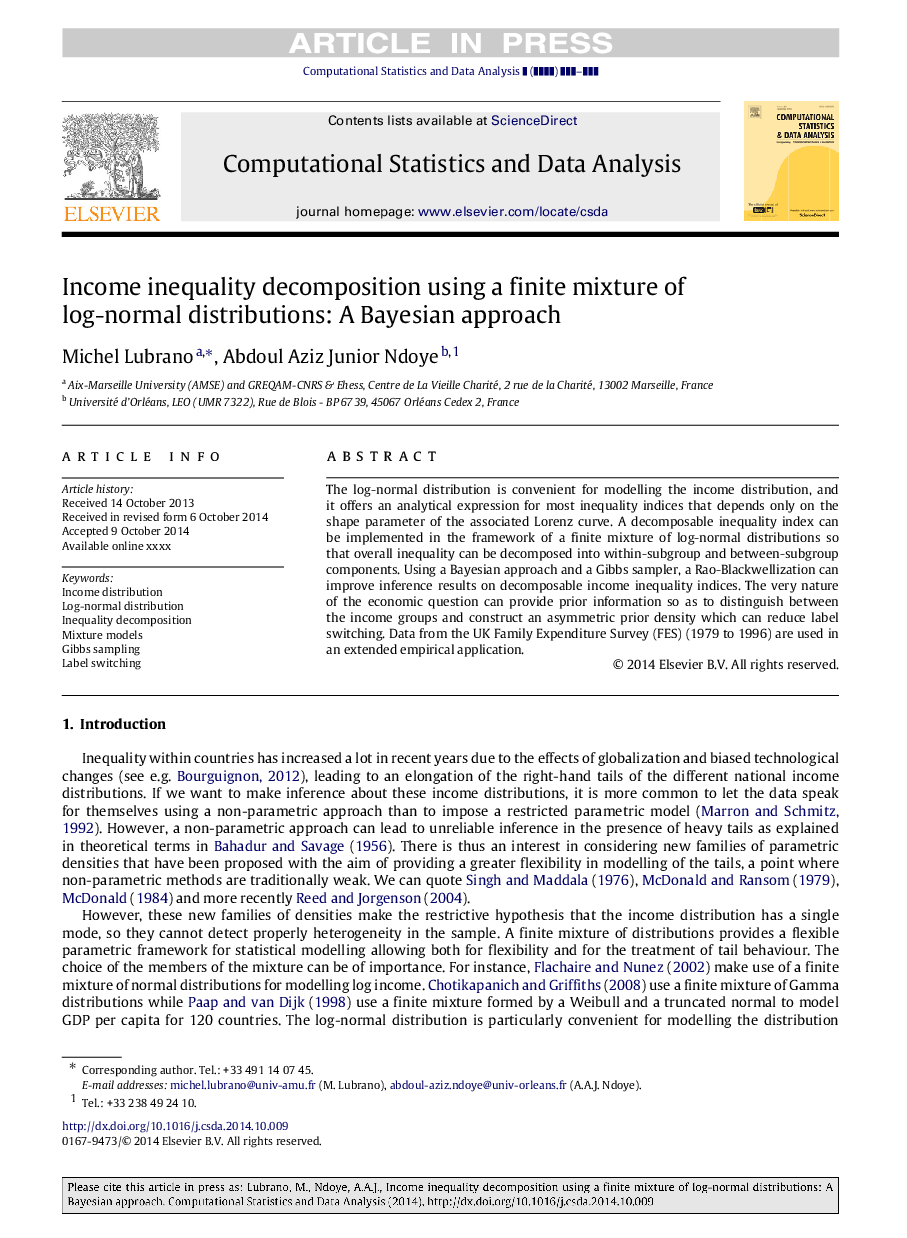| Article ID | Journal | Published Year | Pages | File Type |
|---|---|---|---|---|
| 6869237 | Computational Statistics & Data Analysis | 2016 | 17 Pages |
Abstract
The log-normal distribution is convenient for modelling the income distribution, and it offers an analytical expression for most inequality indices that depends only on the shape parameter of the associated Lorenz curve. A decomposable inequality index can be implemented in the framework of a finite mixture of log-normal distributions so that overall inequality can be decomposed into within-subgroup and between-subgroup components. Using a Bayesian approach and a Gibbs sampler, a Rao-Blackwellization can improve inference results on decomposable income inequality indices. The very nature of the economic question can provide prior information so as to distinguish between the income groups and construct an asymmetric prior density which can reduce label switching. Data from the UK Family Expenditure Survey (FES) (1979 to 1996) are used in an extended empirical application.
Keywords
Related Topics
Physical Sciences and Engineering
Computer Science
Computational Theory and Mathematics
Authors
Michel Lubrano, Abdoul Aziz Junior Ndoye,
